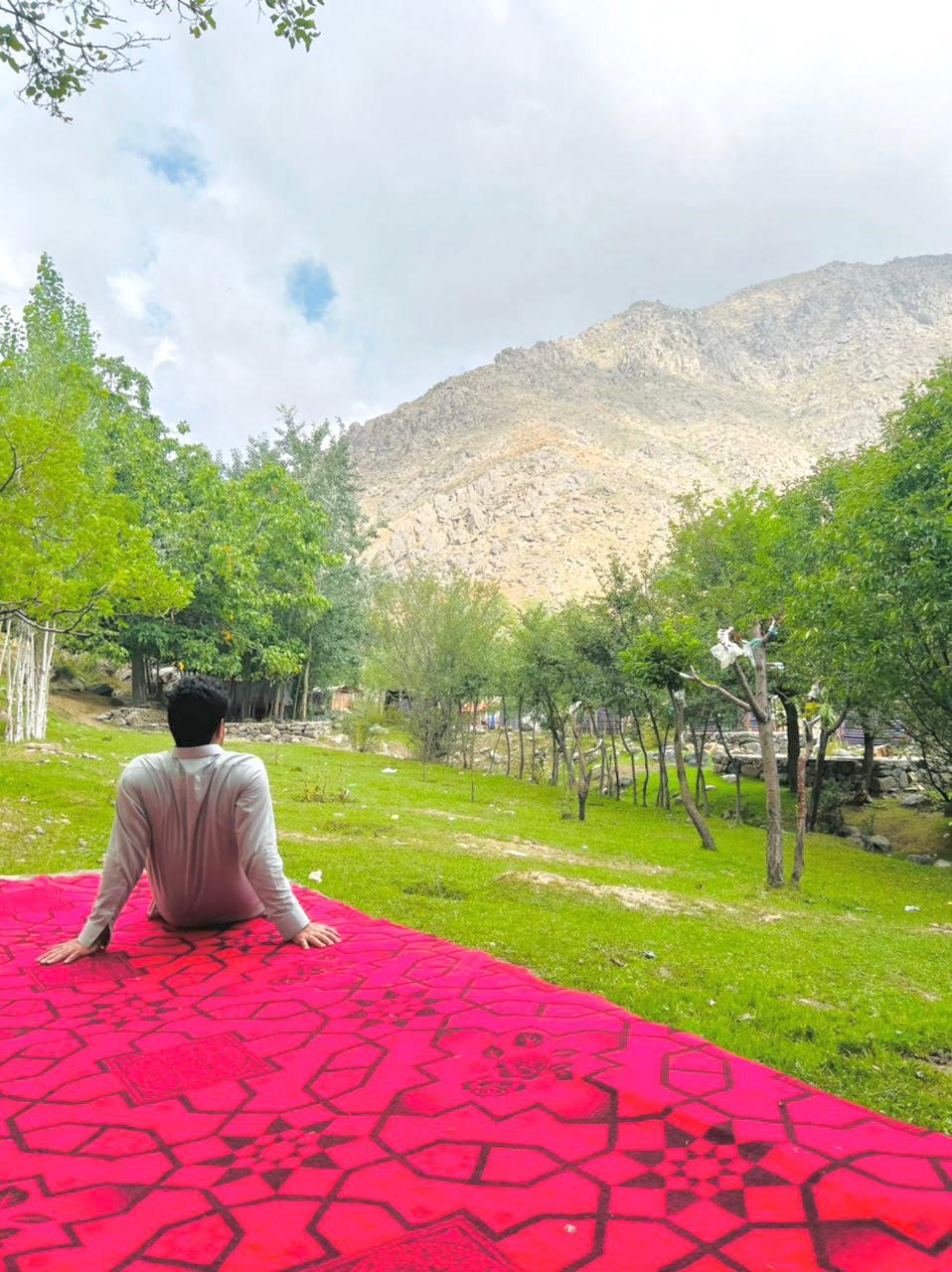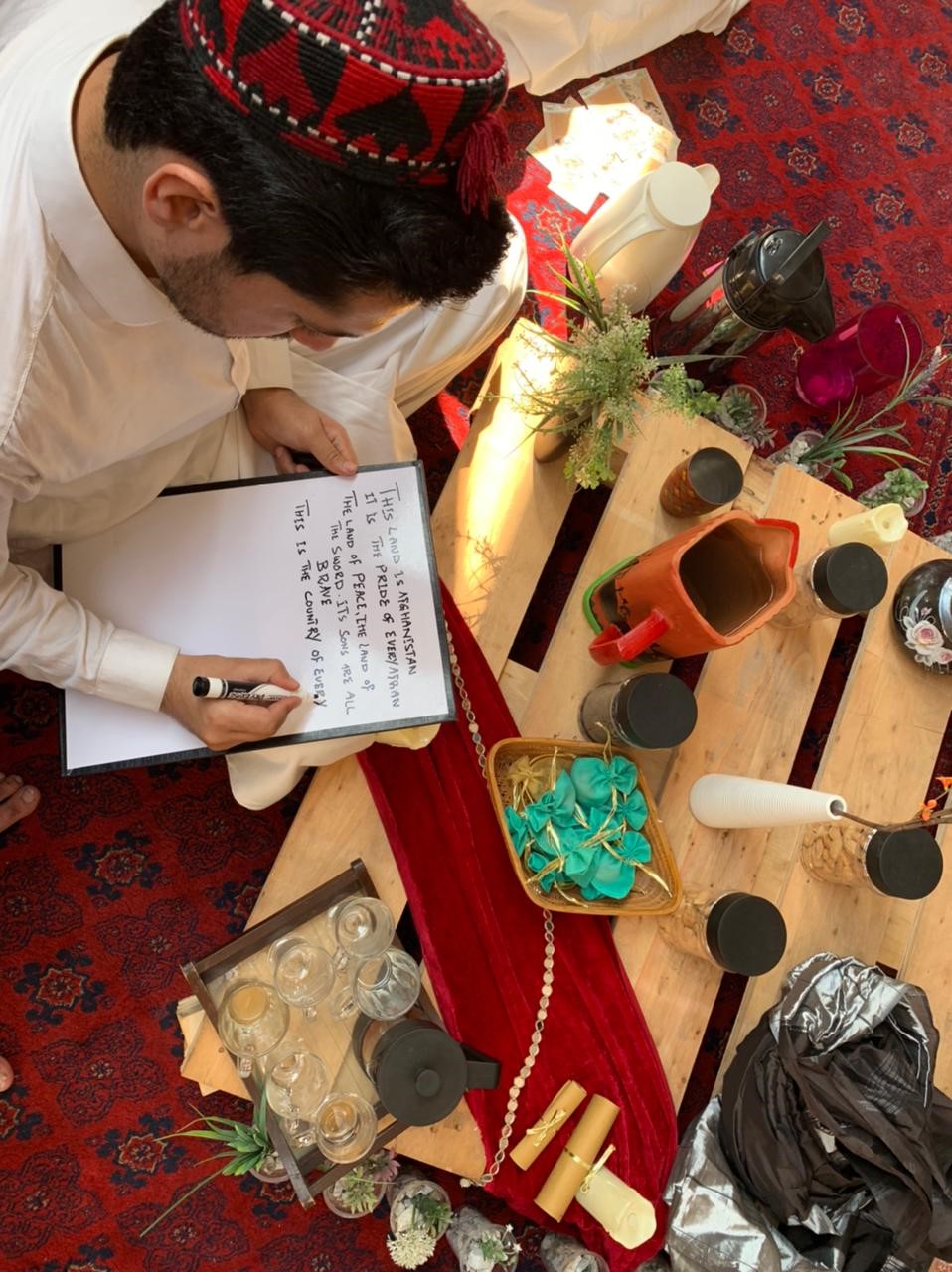
Author: Ajmal Hajizada
Editor: Hamza Raza
The often-unattainable quest for higher education is nothing new for students with refugee backgrounds. I write this blog with a lived experience of my own, though my struggles have made me resilient, the question of a tranquil future still haunts me as I disentangle the twisted answer to where I belong. This piece attempts to shed some light on those we rarely see or listen to, virtually or otherwise. I sat with four recent graduates from different disciplines to understand the lives of young, newly repatriated Afghan refugees in their “home” country who attained higher education from neighboring Pakistan. These in-person and online meetings, along with chat follow-ups spanned two months in which we talked on themes such as opportunity, future, politics, and more.
All four participants had undergraduate or graduate degrees from Pakistan in disciplines ranging from medicine, business, and engineering. Under 30, three males and one female, each of whom is now either actively looking for jobs in Afghanistan or working in public service or private firms there. It has not been an easy journey for them, they report, but their hope to build a stable future for themselves is still afresh.
Opportunities under the new administration: Is it all doom?
Numerous Afghan academics have left the country since the new administration took over due to the restrictive environment, elimination of research funding, and sizable reduction in salaries (Nature, 2022). According to one of my participants, this case is also applicable in the health sector, where experts have flown away to Europe in search of financial and life security. The outflow has created space for fresh medical graduates like Abdul to work in a public hospital in Kabul after completing his education in Peshawar. In an attempt to save the health sector from collapsing, the new regime has facilitated the entry of newcomers as a replacement for senior experts. Although this can be a mitigation strategy for the over-stressed medical services in the midst of the diplomatic isolation of Afghanistan, the exodus of public health experts from the country is a huge loss.
Though Abdul’s experience could be applied to other recent male medical graduates who had repatriated to Afghanistan, the reality is different for female doctors. Shaista, a graduate of a medical college in Lahore, Pakistan, shared that she had no option but to leave her job at the Afghan Ministry of Health after the new administration took over the country. According to her, one of the most significant reasons behind her decision to quit was the question of safety. The historical hostility against women by the current regime, though might have eased this time around, can clearly not be forgotten.
“But is the home also waiting for you as
you are longing for your return to it?”
“It was difficult to get a government job in Afghanistan previously as well, but gender was not an obstacle, it was bribery that was rampant then,” Shaista recalls. Her dreams of rebuilding a home on her return now seem distant. Unclear state policies and politics of gender can fail numerous young girls who wish to contribute to Afghan society, Shaista reports. She stresses the shrunken space for ambitious girls like herself to realize their erstwhile dreams.
Expectations: Ours vs. Theirs
Throughout their time in Pakistan as students, the participants’ families reminded them their home needs them. More so, for those who were on scholarships from agencies like UNHCR or the government of Pakistan, these reminders were more frequent and the message clearer. Therefore, moving back to “home” is seldom a question. It is something that is prescribed by numerous actors around you. “But is the home also waiting for you as you are longing for your return to it?”, – asks Abdul.
 A fresh-water stream in Paghman Valley, near Kabul
A fresh-water stream in Paghman Valley, near Kabul
Asad, who graduated from an engineering university in Peshawar last year, identifies that employment opportunities for repatriated Afghan youth also vary based on the type of educational institute one has studied from, namely a madrassah or university. This was something he never expected as he had always heard that higher education is highly valued in Afghanistan.
“It is not easy to get a job in the public sector in Afghanistan, especially when you are a graduate of a Pakistani university”, shares Asad while adding that there is a general preference to recruit graduates of Pakistani madrassas instead. However, this preference shifts when the employment opportunity in question is in the private sector.
Belonging
After living significant parts of their lives in Pakistan, young repatriates often find it difficult to reintegrate into Afghan society. It is not just your physical location or environment that changes, it is also people’s attitudes, their assumptions about you, and the way they treat you. It is not easy to get comfortable with new realities and contexts once you return to a country that is supposedly your “home” – a place in which the only memories repatriates have are traumatic ones. The question of where young repatriates belong comes up repeatedly – not just as introspections but also in every conversation we have with our friends and extended family members. I can personally recount several occasions when my patriotism was subtly questioned by my friends when I visited Afghanistan. And while one struggles with finding the right opportunity for themselves, these soft interrogatory sessions force one into distress once again.
“It is not easy to get a job in the public
sector in Afghanistan, especially when
you are a graduate of a Pakistani
university.”
Shaista shares that her sheer happiness of finally moving back to her home in Afghanistan after years of living across the border was not lasting. She faced difficulty in communicating with her peers at work, she felt more comfortable expressing herself in Urdu or English compared to Dari. “The way you dress, or talk is never appropriate. It is just like fighting another uphill battle of acceptance for which I have no energy left, especially after living decades as a refugee”, Shaista texted me in our follow-up chat session. The thought of whether leaving the asylum country was the right option, even after knowing that there was no choice, to begin with, still lingers on in the minds of my participants.
 Asad sits on a carpet viewing mountains in the hilly terrain of Paghmam
Asad sits on a carpet viewing mountains in the hilly terrain of Paghmam
As repatriates, it is hard to believe in your dreams. It is even difficult when the home for which you longed for years fails to provide security and opportunity. A rise in the number of repatriates is often taken as evidence of a successful conflict resolution process. And as the world applauds, much more goes on in the lives of those who bear the brunt of displacement at first and yet another at second.
 Ajmal writes at a cultural event in Pakistan showcasing Afghan culture
Ajmal writes at a cultural event in Pakistan showcasing Afghan culture
About the author
Ajmal is a final-year student at the University of Lahore, majoring in International Relations. Fluent in Dari and English, he is an advocate for sharing Afghan refugee experiences in Pakistan through research and print media. He aspires to become a social scientist with a focus on global refugee and migration policy. He can be reached @ AjmalHajizada on Twitter.
